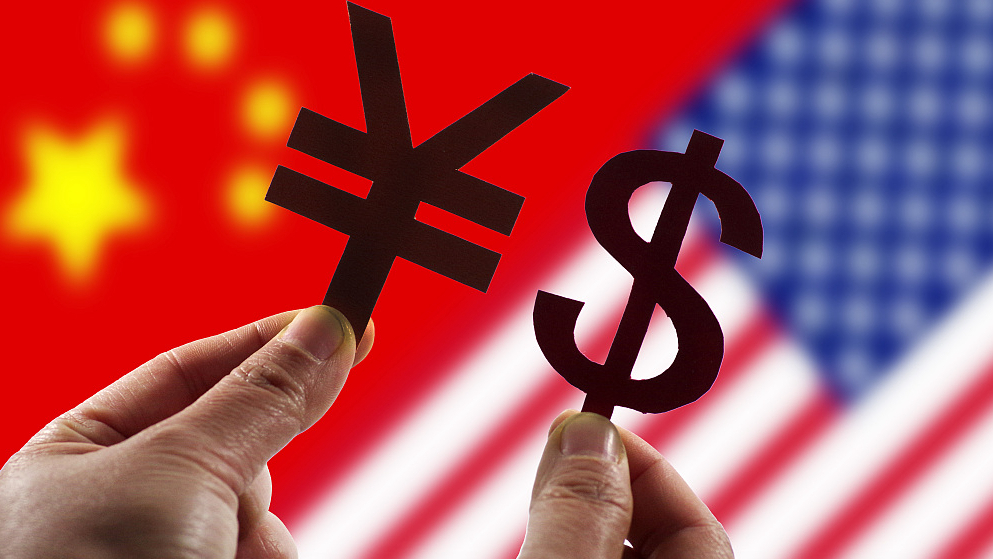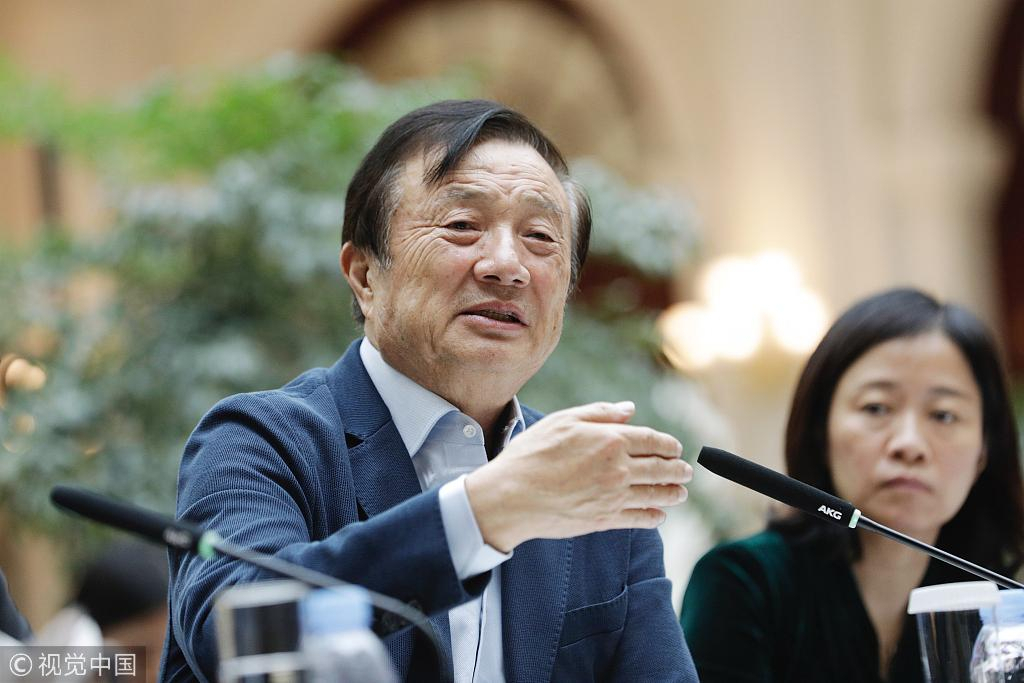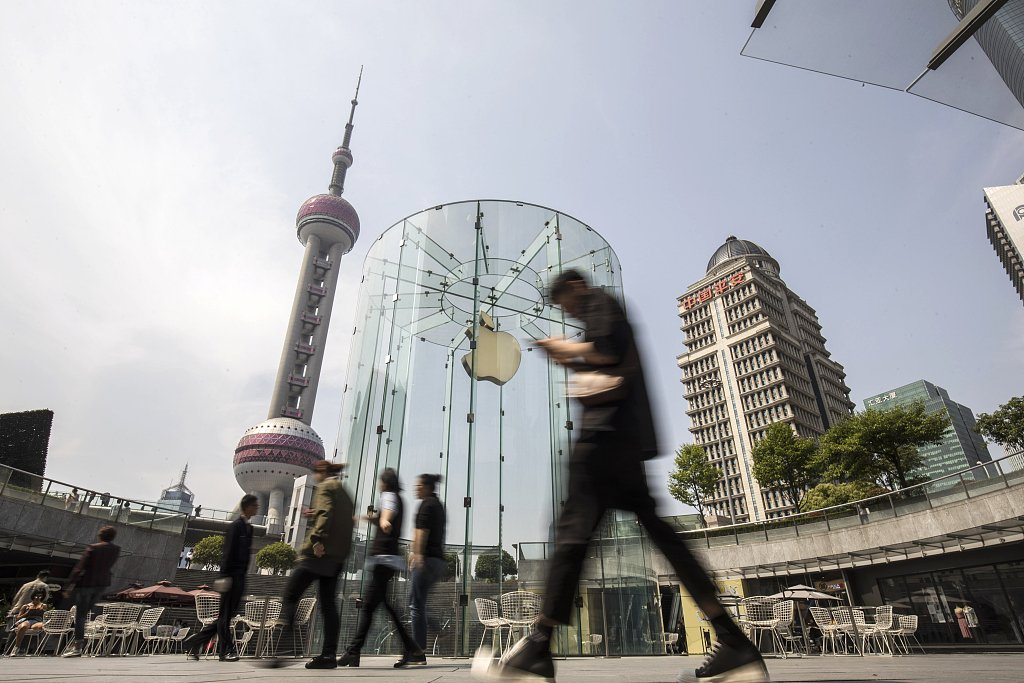

Editor's note: Tom Fowdy is a British political and international relations analyst and a graduate of Durham and Oxford universities. He writes on topics pertaining to China, the DPRK, the UK and the U.S. The article reflects the author's opinions, and not necessarily the views of CGTN.
On Wednesday night, over 100 leading U.S. academics, former officials and business leaders, spearheaded by former diplomat Susan Thornton, signed an open letter in the Washington Post declaring that "China is Not An Enemy."
The contents of the letter set out that even if the United States and China have fundamental differences, or for that matter concerns, the rapid deterioration of Sino-American relations has been largely a consequence of decisions made in Washington.
The signatories attacked common assumptions prevailing in the capital that China is "revisionist," "seeks to displace the U.S." and "build a world order of its own," and they urged politicians to pursue a stable, pragmatic and cooperative relationship.
On that note, they warned that efforts pertaining to confrontation, containment and decoupling would pose grave risks not only for America itself, but countries around the world.
The letter is the first and most visible sign so far of official resistance to Washington's policy on China, which the White House has described as a "strategic competitor."
It comes amid a somewhat confrontational stance from both the executive and Congress that has for many observers, morphed into a cold war-style mentality fearful of everything Chinese.
In the process, Trump's policies on Beijing have been initiated with little to no official scrutiny whatsoever, supported by all major American politicians and even bemoaned when he has been willing to make concessions.

China-made jackets at a Manhattan department store in New York City, May 7, 2019. /VCG Photo
The letter is therefore a necessary and long-awaited response to a political system which has lost its mind on China.
In 2018, America's policies pertaining to China shifted dramatically.
Spearheaded by Trump's initiation of the trade war, major politicians from both parties began to advocate a renewed hawkishness on China which quickly transcended the limits of reason. A mass hysteria and talking point termed "the China threat" erupted in Washington and acquired a McCarthyist character.
Congressmen began to indiscriminately accuse almost everything Chinese of espionage operations, including university students, Huawei and other telecommunications firms, Confucius Institutes, even manufactured subway cars.
In such a context, Trump's own destructive trade war was offered blanket support.
Consequentially, the letter pertaining to China from a series of military, business, academic and diplomatic professionals represents a firm pushback on this prevailing mindset.
Although the document carefully acknowledges there are differences between the two countries and ways whereby the U.S needs to affirm its own interests, nevertheless the ways and assumptions driving its approach are entirely wrong.
Firstly, the document tackles the claim that China seeks to "replace the U.S." and build its own world order. It notes that Beijing remains fundamentally interested in a stable, cooperative and cordial relationship with the U.S. with pragmatism and constructive policies remaining priorities.

Ren Zhengfei (L), founder and CEO of Huawei Technologies Co., speaks during an interview at the company's headquarters in Shenzhen, China, January 15, 2019. /VCG Photo
As the letter continues, Beijing will not overturn such an order because in many ways, it has "benefited from it for decades." They note that, in fact, the current system mandates China's engagement and participation, especially on prevailing issues of the time such as climate change.
Thus, it cautions that a "zero sum" strategy led by Washington that attempts to isolate China may create incentives for Beijing to "disengage" or end up dividing global governance completely on Cold War lines.
Moving on, the experts describe the mindset that America should work to forcefully "decouple" China from the world economy and leading markets as self-defeating.
The blacklisting of leading Chinese firms, including Huawei, has been cheered by Washington politicians but the signatories warn that this behavior will "damage the United States' international role and reputation and undermine the economic interests of all nations"– on which they note "the United States cannot significantly slow China's rise without damaging itself."

An Apple store in Shanghai, China, May 9, 2019. /VCG Photo
Therefore, "if the United States presses its allies to treat China as an economic and political enemy, it will weaken its relations with those allies and could end up isolating itself rather than Beijing."
With this set out, the letter notes that the best way for America to respond to the "China challenge" is to restore "its ability to compete effectively in a changing world and by working alongside other nations and international organizations rather than by promoting a counterproductive effort to undermine and contain China's engagement with the world" – with the view to a "rededication of U.S. efforts to strengthen its own capacity to serve as a model for others."
As a whole, this piece sets out clearly the risks of the status quo. Rather than inflaming hysteria through an adversarial cold war mindset, the United States must, as the letter notes, pursue its China policies with a "realistic appraisal of Chinese perceptions, interests, goals and behavior."
On that note, while China may have many differences and tangible disagreements with America, the lust for confrontation will, in the long run, only be detrimental to Washington's own interests and role in the world. Stability and pragmatism must lead the way.
(If you want to contribute and have specific expertise, please contact us at opinions@cgtn.com.)

Copyright © 2018 CGTN. Beijing ICP prepared NO.16065310-3
Copyright © 2018 CGTN. Beijing ICP prepared NO.16065310-3